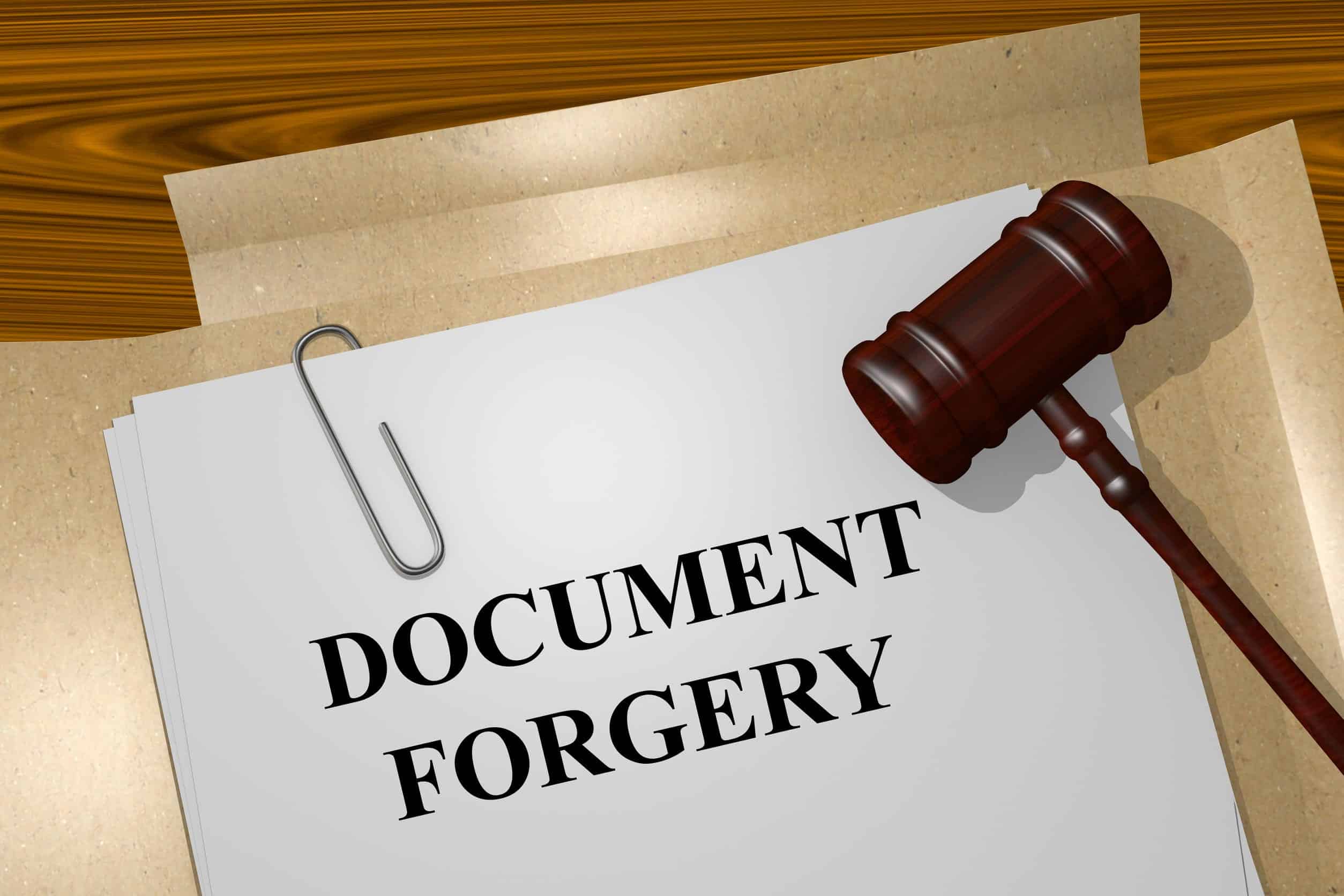- Home
- THE FIRM+
- Criminal Defense+
- CASE RESULTS
- AREAS WE SERVE+
- FAQ’s
- Blog
- Contact
AZHARI LLC BLOG

Posted By: Sami Azhari
Category:
Sometimes what may not seem like a serious crime to you is a very serious one in the eyes of the law. And that’s what one IDOT worker has found out.
A supervisor at the Illinois Department of Transportation was writing fake doctor’s notes to excuse himself from work. He now faces charges of forgery and wire fraud, which can lead to some very serious penalties in the state.
While it may not seem as if it’s a big deal to forge a doctor’s note to play hooky from work, forgery is still a crime that can lead to real penalties when proven.
Learn more about forgery charges in Illinois and the penalties that can result if found guilty of these types of charges.
What Constitutes Forgery in Illinois?
Illinois considers forgery to be a deceptive offense. That means that it’s an act that involves the defrauding of a business or a person with the intent of receiving gain personally or causing financial loss to the person or business that is victimized.
Forgery is a certain type of fraud defined as any act that defrauds a specific victim, such as:
- Altering documents with the intent to defraud
- Creating documents with the intent to defraud
- Unlawfully using the signature of someone else
- Possession of documents meant to defraud and the intent to deliver them
- Using someone’s PIN to create an electronic signature unlawfully
It is also illegal to create a false academic degree if a disclaimer stating the document is only for novelty purposes is not included.
The Penalties for Forgery
In Illinois, forgery is generally regarded as a Class 3 felony. That means that if you are found guilty you can spend up to five years in prison, be required to pay restitution to the victims of the forgery, and also pay fines that can total as much as $25,000 per forgery offense.
Sometimes, charges can be reduced to a Class 4 felony if the forgery crime involved a price code label. For Class 4 felonies, the punishment is still a hefty one: up to three years in prison and fines for as much as $25,000.
If you forge an academic degree, then you can be charged with a Class A misdemeanor. While that may not sound like a serious charge, a conviction can carry a sentence of 12 months in jail and a maximum fine of $2,500.
Is There a Statute of Limitation for Forgery?
For many crimes, there is a statute of limitations that limits the amount of time the state can prosecute the case. For forgery, however, there isn’t one.
That means that you can have criminal charges filed against you at any point in time after the crime was committed.
Defenses for Forgery
If you are charged with forgery, then you need a defense attorney to help you formulate a solid defense. In court, the prosecution is required to prove their case beyond a reasonable doubt.
This means your defense attorney must, at minimum, establish some level of doubt that the crime was committed. There are a number of defense strategies depending on the specific details surrounding each case.
Often, forgery charges are challenged by any single one or a combination of these common defenses:
- There was no intent to commit fraud
- The facts of the case are mistaken
- The defendant was too young to understand what they were doing
- The defendant was coerced by another to commit the crime, meaning it’s not something they would have attempted on their own
Navigate Forgery Charges with Expert Legal Defense
If you’re facing forgery charges, then it’s vital to understand the charges against you as well as your rights under the law. For questions, reach out to an experienced Illinois criminal defense attorney for advice.
About the Author
Sami Azhari has been working as a lawyer since 2007, after receiving his Juris Doctor from the Michigan State University College of Law. He has handled numerous state and federal cases and is known throughout the Chicago and Rolling Meadows area for providing his clients with high-quality, skilled representation. He has been recognized by Avvo (2013 and 2018), SuperLawyers (2015-2020), The National Trial Lawyers, and other notable organizations, and has spoken at a number of legal conferences.


























































